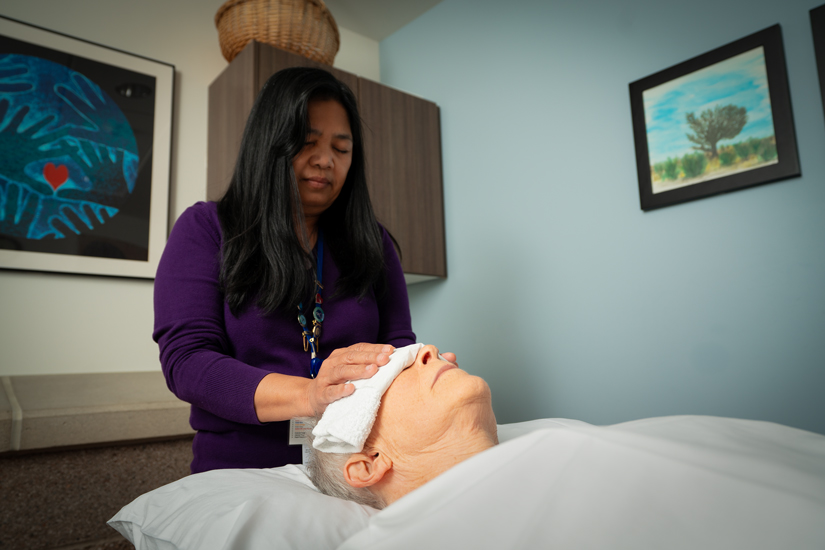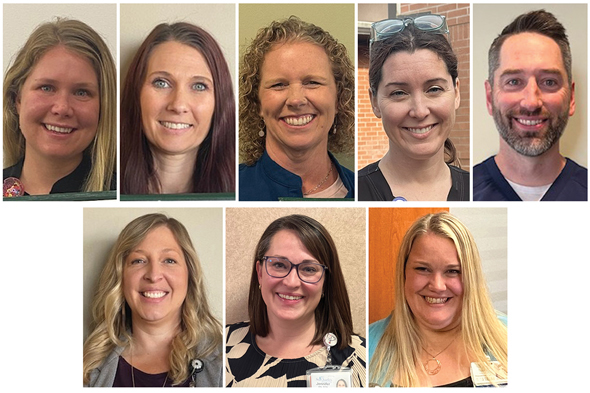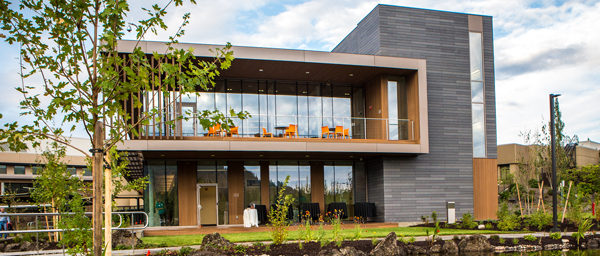Cancer Genetics
All cancer is caused by genetic changes. The majority of these genetic changes are random and result in sporadic cancers. However, some individuals may inherit a genetic change that increases their risk of developing certain cancers. If you or your family have a history of cancer, you may qualify for a hereditary cancer risk assessment. Genetic testing may clarify your personal and family health history and inform personalized medical management guidelines to help prevent a cancer diagnosis.
Who should consider an evaluation with a Genetic Counselor?
If you or your family have any of the following history, you may benefit from a hereditary cancer risk evaluation:
- Rare cancer diagnosis (i.e. ovarian, pancreatic, male breast, medullary thyroid)
- Multiple cancer diagnoses (i.e. colon and uterine; or breast and ovarian) or cancer in paired organs (ie: bilateral breast)
- Multiple relatives on the same side of the family with associated cancer (i.e. breast, ovarian, prostate; or colon, endometrial, gastric, ovarian, and pancreatic)
- Multiple colon polyps (>10)
- Ashkenazi Jewish ancestry
- Known genetic variant in the family
How can a genetics counselor help?
Genetic Counseling is often recommended before any genetic testing for hereditary cancer. If you proceed with testing and a disease-causing genetic variant is identified, you will have a second appointment to discuss medical management options. Genetic counseling usually covers the following:
- A hereditary cancer risk assessment based on personal and family history
- A discussion of the purpose of genetic testing including medical management implications
- A review of the types of genes analyzed, as well as possible findings
- The potential impact on family members
- The cost of testing and potential insurance implications
- Explanation of test results and next steps
What to expect at your appointment
Your first visit will include a review of your personal history, family history, and a discussion of the purpose of genetic testing for hereditary cancer risk. If you elect to pursue genetic testing for cancer risk, your results will be personalized based on your personal history, family history, and any disease-causing genetic variants identified. With this information, you can work with your provider to develop a personalized plan for cancer screening and prevention. Referral options for other specialists may be provided. If you have questions or concerns, please contact 541-706-6729.
Screening and Prevention
For individuals at increased risk for developing cancer based on personal history, family history, or genetic test results, personalized screening and preventative recommendations may include*:
- Starting mammograms earlier than age 40
- Breast MRI
- Full body MRI
- Earlier and more frequent colonoscopy
- Upper endoscopy
- Annual dermatology exams
- Pancreatic cancer screening
- Earlier and more frequent prostate cancer screening
- Preventative surgery such as mastectomy, colectomy (removal of colon), gastrectomy (removal of stomach), or oophorectomy (removal of ovaries)
- Chemoprevention (medication to reduce the risk of developing cancer)
*This list is not comprehensive.





